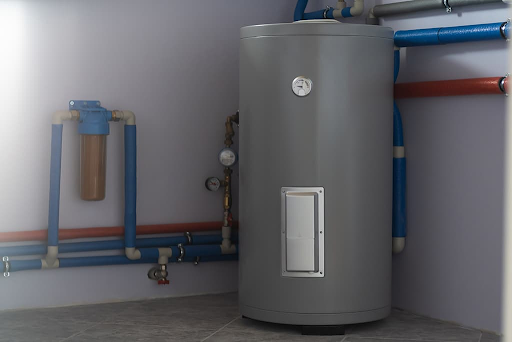
Boilers are essential to many heating systems, providing warmth and comfort to homes and businesses. These systems are made up of numerous parts and components, each playing a crucial role in ensuring your boiler functions efficiently. Whether you’re a homeowner looking to understand your heating system better or an HVAC professional, this comprehensive boiler part guide will give you valuable insights into how these complex systems work.
1. Boiler Basics
Before we dive into the various parts of a boiler, it’s essential to have a basic understanding of how boilers work. Boilers are central heating systems that use a variety of energy sources, including natural gas, oil, electricity, or even solid fuels like wood. They heat water or other fluids to produce steam or hot water, which is then distributed throughout the building to provide warmth.
2. The Key Components of a Boiler
Heat Exchanger
The heat exchanger is the heart of the boiler. It’s a crucial component responsible for transferring heat from the fuel source to the water or other fluids. In most systems, the heat exchanger is a metal chamber with coils or tubes through which the hot gases or flames pass, heating the water that surrounds them.
Burner
The burner is where fuel is combusted to produce heat. Boilers can have various types of burners, including oil burners, gas burners, or even electric heating elements. The choice of a burner depends on the type of boiler and the available energy source.
Control Panel
The control panel is like the brain of the boiler, where you can adjust settings to maintain the desired temperature and pressure. It ensures the boiler operates safely and efficiently, and some advanced systems offer remote monitoring and control through digital interfaces.
Water Pump
The water pump circulates water or steam through the heating system. It’s essential for distributing heat evenly and maintaining the right pressure levels. In some systems, a circulation pump is used to move water through the radiators or underfloor heating.
3. Additional Boiler Components
Pressure Relief Valve
Safety is a top priority in boiler design. The pressure relief valve is a crucial safety feature that releases excess pressure to prevent damage to the boiler. It’s a crucial component to prevent catastrophic failures.
Expansion Tank
Boilers heat water, causing it to expand. The expansion tank provides a buffer for this expansion, ensuring the boiler’s pressure remains within safe limits.
Aquastat
The aquastat is a thermostat that controls the temperature of the water in the boiler. It helps maintain a consistent temperature for efficient heating.
Flue Pipe
The flue pipe is responsible for venting combustion gases safely outside. Proper venting is essential to ensure the boiler operates safely and efficiently.
4. Boiler Types and Their Parts
Boilers come in various types, each with its unique set of components. Here are some common types and their key boiler parts:
Combi Boilers
Combi boilers are known for their compact size and efficiency. They include the following components:
- Heat Exchanger
- Burner
- Control Panel
- Circulation Pump
- Pressure Relief Valve
- Expansion Tank
- Aquastat
System Boilers
System boilers are suitable for larger homes and come with an integrated hot water cylinder. They include:
- Heat Exchanger
- Burner
- Control Panel
- Water Pump
- Expansion Tank
- Pressure Relief Valve
- Flue Pipe
Conclusion
Boilers are essential for providing warmth and comfort in many homes and businesses. Understanding their components and how they work is crucial for both homeowners and HVAC professionals. Regular maintenance, timely repairs, and a good understanding of common boiler problems can help keep your heating system running efficiently and safely, ensuring your comfort during the colder months. If you encounter significant issues or are uncertain about maintenance procedures, always seek professional help to ensure the safety and longevity of your boiler system.